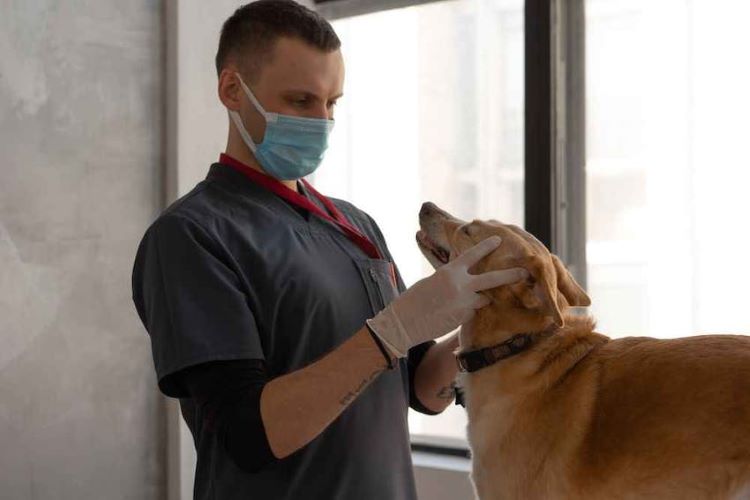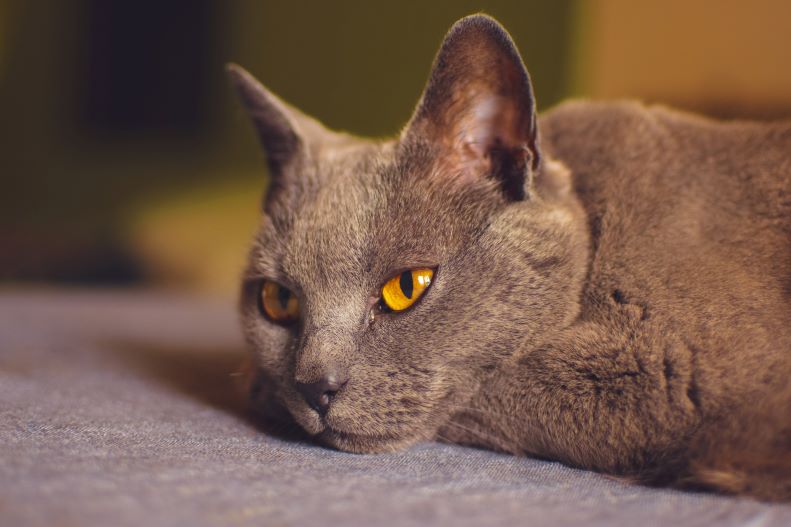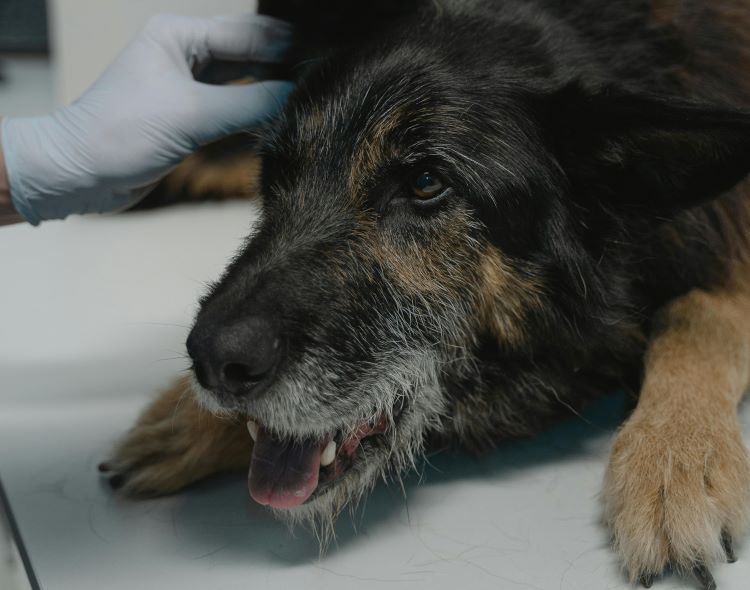Ready to help treat your pet to a healthy life?
Pet Surgery: What to Expect, How to Help Dogs & Cats Recover
By : Brianna Gunter | Updated Jan 30, 2025

No pet parent wants their dog or cat to have to go through surgery, but it can be a necessary treatment when it comes to serious health conditions or injuries. Though pet surgery is certainly stressful for owners and animals alike, the best thing you can do for your pal is take care of them before and after the procedure.
You’ll need to talk with your pet’s veterinary surgeon ahead of time to get the full details — even routine surgeries can be different for each animal. Nevertheless, there are some basic tips you should be aware of that will help keep your pet calm, comfortable, and safe throughout.
Preparing for pet surgery
When your pet is scheduled for surgery, it’s important to get as much information as possible. This is especially true if your pet has seen multiple veterinary professionals for their diagnosis and treatment plan. In fact, you’ll probably want to take notes during your pal's appointments.
“Recommendations for your pet before and after surgery may vary from veterinarian to veterinarian and even hospital to hospital,” explains Trupanion veterinarian Dr. Sarah Nold, who also notes that the rules can also change depending on the specific surgery and/or if there are [other health conditions] involved.”
In addition to following veterinary instructions, it’s important to stay relaxed around your pet. Stress levels in dogs and cats have been shown to sync with those in humans, and your pal may already be bothered by changes in his routine or health symptoms. One of the best things you can do prior to your pet’s surgery is just be a calming presence.
Bring a clean pet to the vet
Assuming your pet’s surgery is not an emergency situation (in which case you won’t be doing much preparation anyway), it’s a good idea to make sure they arrive at the animal hospital fresh and clean.
“Having your pet clean and well-groomed prior to surgery is ideal, but always follow your veterinarian’s advice,” Nold says. However, she notes that giving pets a bath immediately beforehand is rarely necessary, “unless your pet decided to get particularly dirty the day before.”
Can dogs and cats eat food before surgery?
If you’ve ever had surgery yourself or know someone who has, you’re probably familiar with the concept of not eating food for several hours or even an entire day prior to the procedure. So, it’s natural to wonder if the same rules apply to dogs and cats.
According to Nold, this is usually the case, but it will hinge on a few different factors.
“In general, with the exception of emergencies, food should be withheld for a period of time before general anesthesia to decrease the risk of vomiting or regurgitation and aspiration. If this was to occur, it can be life-threatening,” Nold says. “A common recommendation is to not give food after midnight. This period of time may be longer or shorter depending on the size, age and species of your pet. It also depends somewhat on what time of day the surgery will be performed.”

Post-op tips—how to help your pet recover safely
Practicing good pet care will help your furry friend recover successfully and safely from their operation.
Follow your veterinarian’s instructions
Always follow the instructions that are specific to your pet, especially when it comes to aftercare and medication. Failing to do so could delay recovery or worse, put your pet’s health at risk.
“Don’t be afraid to ask questions ahead of time, such as what are possible complications and what to expect regarding recovery,” Nold advises. “Your veterinarian and veterinary staff are in the best position to ask questions specific to your pet.”
Keep your pet comfortable and calm
When your pet comes home after surgery, they’ll need a comfortable, quiet space to recover safely. Make sure their bed is thoroughly clean, or consider swapping it out entirely for new bedding. Depending on the type of procedure and how extensive the recovery will be, you’ll also need to limit your pet’s activity.
“Don’t encourage jumping or playing,” says Nold. “Often leash only walks will be recommended for a period of time, days to weeks, with confinement in a small space or kennel otherwise.”
If your pet is in pain, talk to your veterinarian. If they haven’t done so already, they may prescribe medication that you will need to administer. Dogs and cats who have recently had surgery should never be given alternative medicine as a substitute for pain relief medication unless their veterinarian says it’s okay.
Maintain the incision area
Your pet’s veterinary team will provide you with instructions on how to maintain the affected area after the procedure, which you’ll need to follow carefully. Typically, this will focus on keeping the incision/wound region and any bandages/splints/casts clean and dry.
“In many cases you wouldn’t be able to give your dog a bath for a period of time afterwards” Nold says. “So, don’t plan a trip to the beach with your pet for the following weekend without checking with your veterinarian first.”
Maintaining the incision also means keeping e-collars — also known as Elizabethan collars or the cone of shame — on your furry friend until your veterinarian says otherwise.
“Without an e-collar, your pet may chew through their sutures, opening a wound that will require additional care and possibly another surgery,” Nold explains. “That said, e-collars can make it difficult for your pet to eat or drink, so you can remove it only under close supervision. I have seen the messy aftermath more than a few times of a pet being unsupervised without an e-collar on for only “a minute.”

Don’t skip follow-up appointments
Your veterinarian will need to see your pet for a follow-up visit (or multiple ones) in order to ensure that they are recovering properly and without complications. Even if your pet seems fine, do not skip any of these appointments. Doing so could put your pal’s health at risk.
How long will my pet’s surgery recovery take?
The amount of time your dog or cat takes to recover from surgery will depend on the surgery being performed. Less invasive, short procedures will come with less downtime, while others may result in months of recovery. Your pet’s overall health matters too, as coexisting conditions and their age may also affect their recovery rate.
Either way, don’t rush your friend in getting back to normal. It can be tempting to start playing or go to the park the moment they start to feel better. However, it’s important to go slowly and keep your pal on a steady path to successful recovery. Dogs and cats can’t tell us how they’re really feeling, so they may still be healing internally and require rest whether they are acting tired or not.
“Think about how you felt (or think you would feel) following a similar surgery,” Nold says. “Dogs and cats are really good at hiding pain and discomfort, but it doesn’t mean they aren’t experiencing it.”
When to seek veterinary help
Talk with your veterinarian ahead of time about what to watch for post-op, as well as what signs may require further medical attention. Have an emergency plan in place if you notice complications after your veterinary clinic is closed.
Each situation will be different, but seek medical attention for your pet if you notice any of the following:
- Unpleasant odor, especially around the incision
- Excessive fluid drainage or bleeding
- A wound that has come open or sutures that have come “undone”
- Loss of appetite (the first day or so after surgery is normal, but talk to your veterinarian if it continues)
- Not drinking any water
- Vomiting
Does pet insurance cover surgery?
When your dog or cat is in need of an operation, financial difficulty often gets in the way. Figuring out how to afford pet surgery can be challenging, but the good news is that you do have options. For example, the right pet insurance plan will cover surgical procedures as long as the condition is not considered pre-existing (as in, it was diagnosed after you already had pet insurance in place rather than the other way around).
It’s also worth noting that if your pet has a “wellness plan” with their veterinarian or third-party provider, this typically will only cover basic, routine treatments. It will not cover bigger procedures like surgery or anything deemed non-preventative care or maintenance. Typically, only a quality pet insurance plan that covers unexpected illnesses and injuries covers surgical costs for dogs and cats.
Learn more about Trupanion’s coverage to see how pet insurance can help your best friend.
